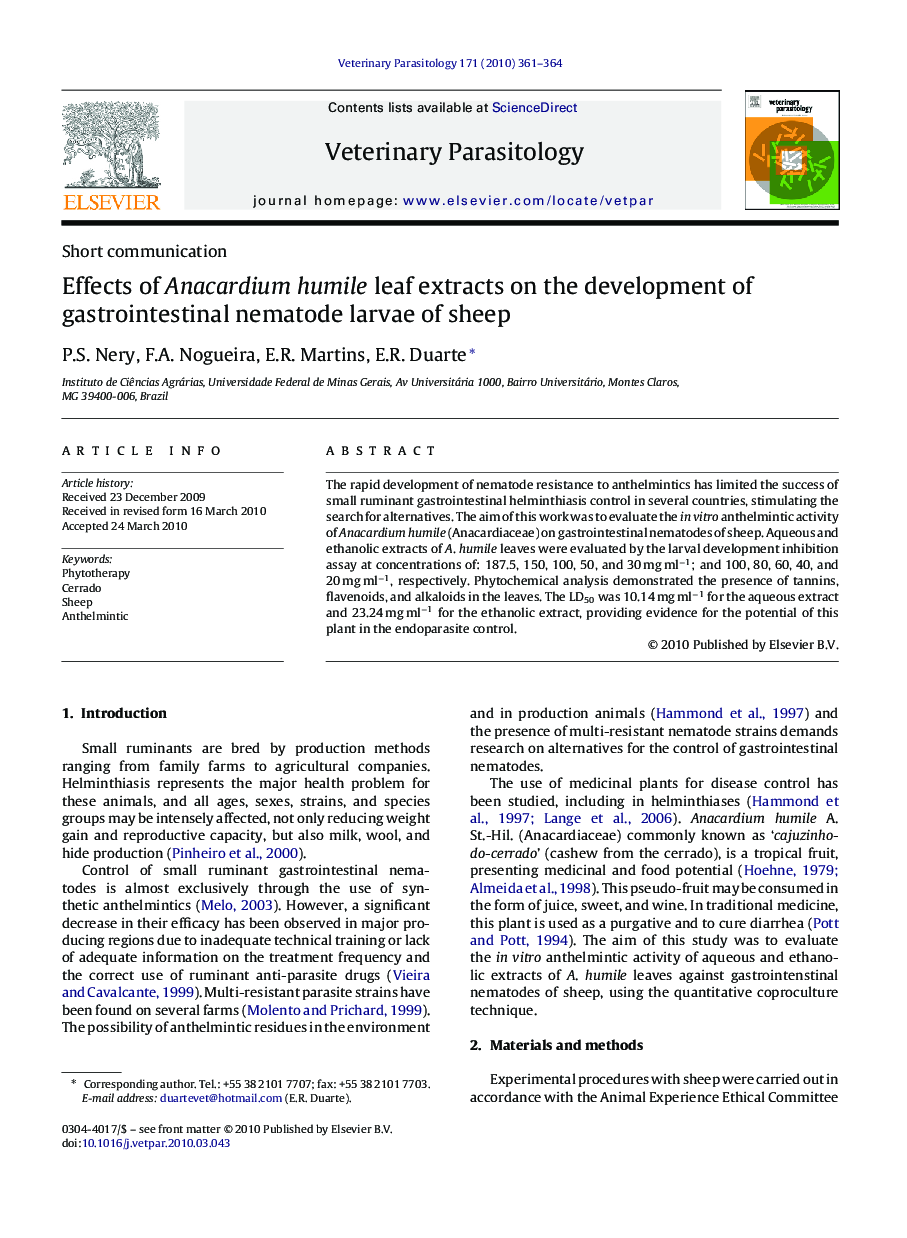| Article ID | Journal | Published Year | Pages | File Type |
|---|---|---|---|---|
| 2470559 | Veterinary Parasitology | 2010 | 4 Pages |
The rapid development of nematode resistance to anthelmintics has limited the success of small ruminant gastrointestinal helminthiasis control in several countries, stimulating the search for alternatives. The aim of this work was to evaluate the in vitro anthelmintic activity of Anacardium humile (Anacardiaceae) on gastrointestinal nematodes of sheep. Aqueous and ethanolic extracts of A. humile leaves were evaluated by the larval development inhibition assay at concentrations of: 187.5, 150, 100, 50, and 30 mg ml−1; and 100, 80, 60, 40, and 20 mg ml−1, respectively. Phytochemical analysis demonstrated the presence of tannins, flavenoids, and alkaloids in the leaves. The LD50 was 10.14 mg ml−1 for the aqueous extract and 23.24 mg ml−1 for the ethanolic extract, providing evidence for the potential of this plant in the endoparasite control.
